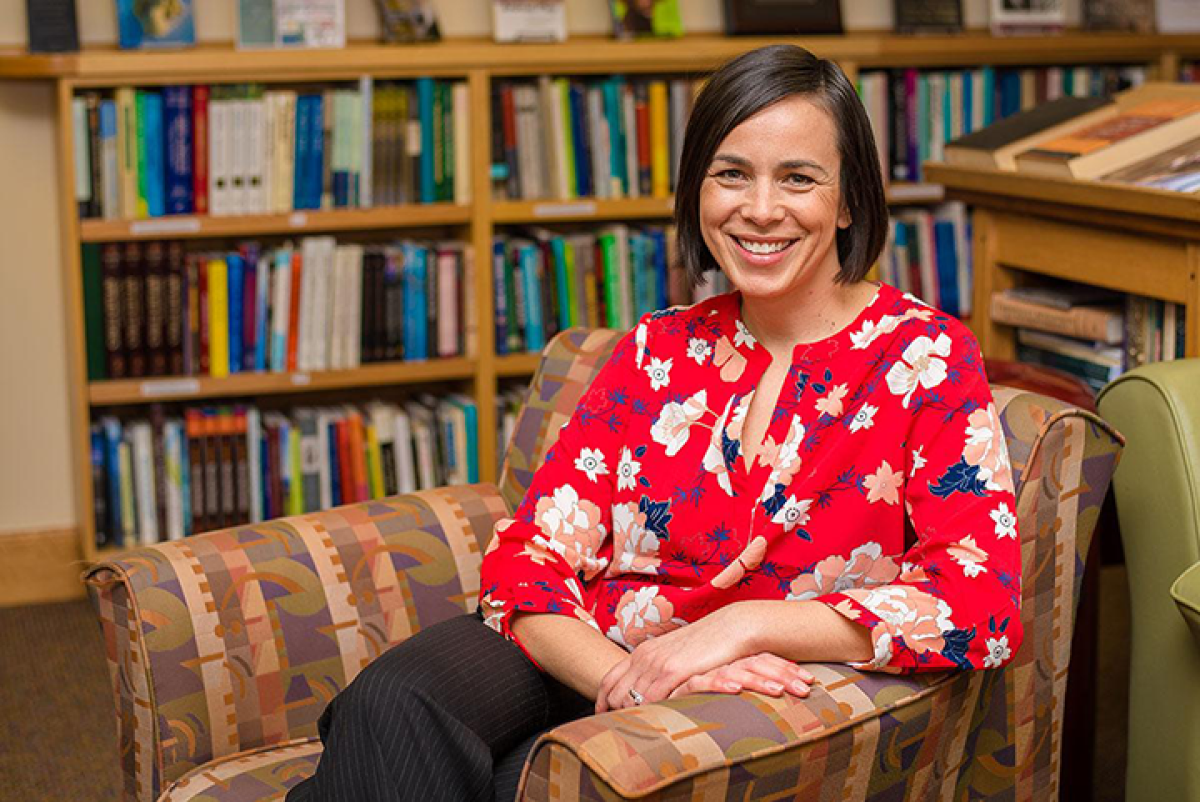GSSW Professor to Study Youth Participation as Fulbright Fellow in Taiwan

Like many Americans during the COVID-19 pandemic, Kimberly Ann Bender and her family hardly left their neighborhood. Now, they are preparing to move across the world.
In August, Bender, the University of Denver’s Philip D. and Eleanor G. Winn Professor for Children and Youth at Risk in the Graduate School of Social Work, will begin her six-month term as a Fulbright Fellow at National Taipei University in Taiwan. She will work with the NTPU Flagship Project, which blends social work and sociology in researching youth.
“One area they focus on is youth participation, an area that I’ve been studying here in the U.S. and have wanted to spend time thinking about through an international lens this year on sabbatical,” Bender says.
Much of her recent work has focused on youth participation and activism. Thus, she plans to devote part of her time to interviewing other scholars who do youth participation work to understand how they conceptualize the topic.
“And one of my collaborators in Taiwan has connected me with a community-based organization where we’ll do research with young people in an after-school program,” Bender says. She also will conduct a training workshop at NTPU on Photovoice, a participatory action research method that allows participants to tell their stories through their own photographs and narratives.
The Fulbright Program is the U.S. government’s flagship international educational exchange program. Fulbright’s network of scholars, alumni and global partners aim to foster mutual understanding between the U.S. and partner nationals, share knowledge across communities and improve lives globally.
“I feel a lot of gratitude to have this award. It’s going to create an opportunity that I never imagined,” Bender says. “Folks are opening their arms to learning together across cultures and countries.”
In her U.S.-based research, Bender examines how young people use their voices to create social change.
“My work in the U.S. has been activism-oriented,” she says, including providing guidance for programs on how to better offer support. “Taiwan tends to be more communal and collectively oriented. I’m interested to think about how participation looks there, which may include a greater focus on young peoples’ sense of responsibility for their community.”
The Fulbright Fellowship will afford her the chance to observe what participation means to young people in another culture and reflect on the differences or similarities between the two nations. While leaning more toward collective cultural experiences than the United States, Taiwan is also a capitalist country.
“It’ll be interesting to see where there may be overlap and divergence between practices,” Bender says. “We’re starting to study mutual aid more in the U.S., partly out of the pandemicT, where many people ended up being more collectivist in responding to neighbors’ needs and taking care of one another when a lot of our systems fell short and couldn’t take care of us. “
Her stateside research in recent years has been funded by the Corporation for National and Community Service, also known as AmeriCorps. She and her collaborators have pursued a series of Photovoice projects; for example, in a project called Affirming Ground, young people document their experiences of homelessness and advocate for social change.
“They document their experiences and then come back together in groups to dialogue about what they capture in their photos, what it represents and what recommendations they make based on what they collected,” Bender says. But in the U.S., homelessness carries a great deal of stigma.
“A lot of what young people talk about is that they’re so much more than their unhoused experience. They have significant aspirations for education, for activism, for jobs and employment, for relationships,” she says.
But they often find their aspirations stifled.
“Once you’re labeled as homeless and then funneled into a service system, there are not a lot of opportunities to grow as a person, follow your dreams and evolve holistically,” Bender notes. “Often, you’re positioned as a service recipient to get structured case management. They’re at a developmental age where they’re trying to figure out who they are and what they want to do in the world. And that discussion is often lacking in what our typical system response offers them.”
Bender’s Photovoice and youth participatory action research methods have focused on working with young people as co-researchers of their own experience.
“It’s really changed things that I thought I understood. It’s become much clearer that it’s very difficult to truly understand someone’s experience if you haven’t been through it yourself.”
That type of research, she has found, is rare in Taiwan, but there is great interest among her future collaborators. She has learned that Taiwanese tech-savvy youth might prefer making short videos instead of taking photographs and that they have an interest in engaging in a project that exchanges their media creations with young people in the U.S.
“I am excited that these new collaborative projects will mean expanding my tools and methods as I co-learn and co-create with young people in Taiwan,” she says.
The Fulbright Scholar application cycle is currently open for 2024-25 academic year. The application deadline is September 15, 2023. Interested applicants can contact the DU Fulbright Scholar campus liaison, Leasa Weimer, at leasa.weimer@du.edu, with specific questions or personal consultations.







